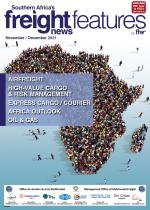That is how the International Monetary Fund (IMF) introduces its 2021 economic outlook for sub-Saharan Africa.The “one planet” refers to the global Covid-19 pandemic. The IMF wants to see at least 40% of the world population vaccinated by the end of 2021, and 70% by the first half of 2022.“For sub-Saharan Africa, these goals are ambitious and will require a marked change in strategy by both advanced economies and sub-Saharan African countries,” the report states.One of the proposals to speed up African vaccinations is for the international community to remove cross-border export restrictions on raw materials and finished vaccines, “ensuring that the Aspen facility in South Africa is operating at full capacity and that the Serum Institute of India resumes exports to COVAX”, it states. Logistics also needs to be improved as a shortage of vaccines is hampering rollout in countries like Eswatini, Ghana, Kenya, Namibia and Rwanda.Global supply chain disruptions are also affecting African economies.Denys Hobson, Investec for Business logistics and pricing analyst, says sea freight disruptions are a never-ending story. “The only constant is the anticipation of what will be the next major setback to an already severely constrained sea freight market.”He predicts that freight rates will continue to rise.“Two worlds” highlights what the IMF calls a “dangerous diversion”.Although advanced economies are projected to return to their pre-crisis path by 2023, the pandemic has permanently lowered the path of real GDP in sub-Saharan Africa by about 5.6%.To match the performance of advanced economies, sub-Saharan Africa needs to grow twice as fast for the next three years, according to the report.“Three stories” identifies divergence in economic recovery across Africa.The Covid-induced income is expected to vary significantly, ranging from a permanent loss of real output of more than 20% for Cabo Verde to less than 3% for Togo and Zimbabwe. The transport industry is identified as one that has been hardest hit by the pandemic.These losses are countered by a growth in African logistics startups, which are attracting significant investment, according to The Baobab Network.“In the wake of the fourth industrial revolution, digitisation has made its way into the transport and logistics sector as African startups provide solutions for moving goods and people,” it states in a recent study which predicts that 30 of 430 startups founded since 2017 will attract more than $200 million in funding in 2021. This is evidence of the “two-speed recovery” that the IMF warns about.Fragile and resource-intensive countries are faring significantly worse than non-resource-intensive countries.There is also divergence within most countries. Across the region, working hours were cut by more than 7% in 2020 — equivalent to a loss of about 22 million full-time jobs — with a disproportionate impact on women, young people, and the poor. In South Africa, for example, low-wage workers suffered almost four times more job losses than high-wage workers, while the gap between male and female earnings increased from 29% to 43%,” according to the IMF.There is a correlation between recovery and vaccination rates.Botswana and Seychelles are identified as countries which are expected to grow faster than the rest of the continent due to successful vaccination programmes.

